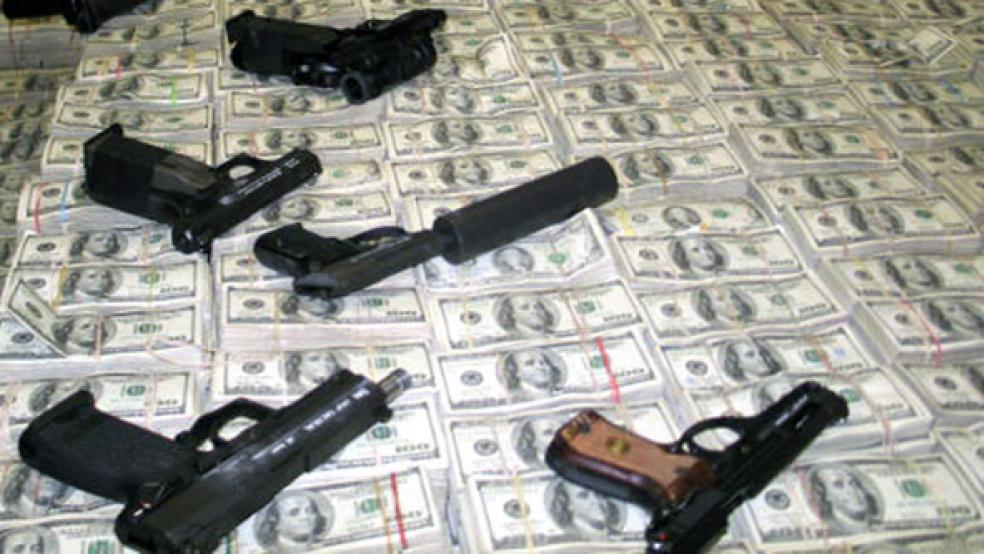While the rest of the economy struggled to add jobs and grow, employment within the firearms and ammunition industry exploded by 30.6 percent between 2008 and 2011. The industry's federal tax payments also soared by 66.5 percent to hit $2.5 billion. That’s according to the National Shooting Sports Foundation, which earlier this year released a report highlighting these figures, and a nearly two-year-long string of month-over-month increases in the number of buyers requesting background checks in order to be able to buy new weapons.
It’s too bad that one of those background checks was on alleged mass murderer James Holmes, who appears to have acquired the weapons used to kill 12 people and injure dozens more at a Colorado screening of the new Batman movie, Dark Knight Rises, legally. Now the industry and its investors are holding their collective breath, waiting to see whether the shooting spree will claim their profits among its victims.
Michael Bloomberg, New York City’s mayor, has taken a firm stance, calling on both President Barack Obama and the Republican Party’s presidential candidate, Mitt Romney, to demonstrate some leadership on gun control issues. "This really is an enormous problem for the country,” he commented on MSNBC’s Morning Joe. “Where are they now and why don't they stand up?” (Both candidates have offered condolences to victims and to the families of the deceased; neither has made any forceful statements indicating they would take a tougher approach to gun control.)
Still, Storm Ruger & Co.’s stock is on a tear today – upward. Evidently, investors aren’t at all worried that either candidate could successfully implement new gun control laws, as the company’s shares have risen 2.7 percent at the time of writing, to $43.72.
Gains at the only other publicly-traded gun company, Smith & Wesson are more muted, but in neither case do investors appear to see the Colorado shootings as a game-changer. As in many election years, gun sales have soared; Smith & Wesson said earlier this year its order backlog was double year-ago levels while Storm Ruger – whose sales hit a four-year high in the first quarter – even temporarily stopped taking new orders in the spring, because it simply couldn’t manufacture guns rapidly enough.
Clearly, in spite of the movie theater attack, the shooting of Representative Gabrielle Giffords last year, and other high-profile attacks using guns, the political impetus for tougher gun laws seems to be absent. Indeed, analysts attribute this year’s flurry of gun buying to fears that a newly re-elected President Obama might crack down on gun ownership.
To the extent that events in Colorado fuel that fear, this may – ironically – be a good time to own shares of either gun manufacturer. That is particularly true since even if Obama does push for more restrictive gun laws, the push back in Congress may well end up making the healthcare debate look like a walk in the park.
Oddly enough, the stocks that are suffering today as a result of the news of the shooting are those of movie theater chains. Cinemark Holdings, owner of the movie theater chain at which the shooting occurred, is down 2.1 percent currently, despite having reported a surge in ticket sales in the first quarter and being likely to benefit further from sales of tickets to the Hunger Games during the second quarter. Shares of Regal Entertainment, the country’s largest theater chain, are down 2.7 percent.
It’s hard to avoid pondering the irony that the gun companies are trading higher in the aftermath of the tragedy, while those associated with the locale – a movie theater – are lower, apparently on fears that moviegoers will stay home amid fears of copycat attacks. It’s an unnerving contrast, but one that reminds us all that the stock market is a dispassionate assessor of risk and return.






